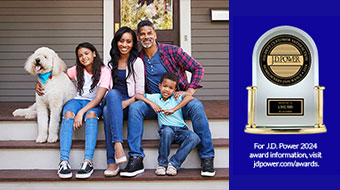- Individuals & Families
- Businesses
- Agents & Brokers
- Embedded Insurance

Chubb ranked #1 for Homeowners Insurance Customer Satisfaction.

Chubb ranked #1 for Homeowners Insurance Customer Satisfaction.

Chubb ranked #1 for Homeowners Insurance Customer Satisfaction.

Chubb ranked #1 for Homeowners Insurance Customer Satisfaction.

Because pets are family, Chubb now offers pet insurance with top-rated coverage from Healthy Paws.

Chubb offers the insurance protection you need for travel’s many “what ifs”.

Chubb protects small businesses at every stage – from newly formed start-ups to long-time anchors of the community.

Stay ahead of cyber threats with our free Cyber Claims Landscape Report.

Learn more about our dedicated learning paths, Online Learning Center, and more.

Many digital-savvy consumers look for it as a core or add-on option.

Many digital-savvy consumers look for it as a core or add-on option.

Many digital-savvy consumers look for it as a core or add-on option.

Chubb’s in-house technology makes it easy to integrate what we do into your customer experience.
-
About
-
Claims
-
Login & Pay Bill
For Agents & BrokersFor Travel Advisors
-
Back
Construction Safety
- Implementation and auditing of health, safety and environmental programs
- Pre-construction planning
- Job hazard analysis
- Jobsite surveys
- Tower/mobile crane training
- Rigger/signalperson training
- OSHA 1926 10/30 hour training
- Supervisor and task-specific training
- Insurance assessments and evaluations
- Safety perception and gap surveys
- Track and trend recommendations
- Environmental consulting and engineering
- Ergonomic evaluations
- Transportation and fleet services
- Industrial Hygiene
- Full and part time site safety managers
Chubb Risk Consulting’s best practices philosophy helps drive consistent, high-quality services. As part of these best practices, advises that clients:
- Clearly communicate safety responsibilities from project executive to supervisory staff to the field
- Clearly outline safety responsibilities for contractors and subcontractors in their contract documents
- Provide effective and documented employee orientation
- Conduct pre-construction/pre-planning meetings for trades/tasks considered high exposure
- Proactively complete a job hazard analysis and develop safety procedures
- Provide training and re-training
- Perform regular safety audits and track actions to completion
- Maintain a “zero-tolerance” philosophy for unsafe practices
- Recognize and reward positive safety behaviors

